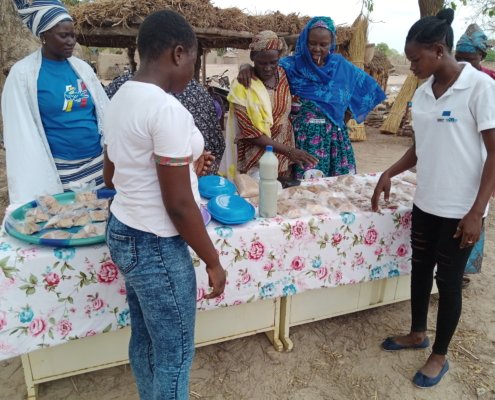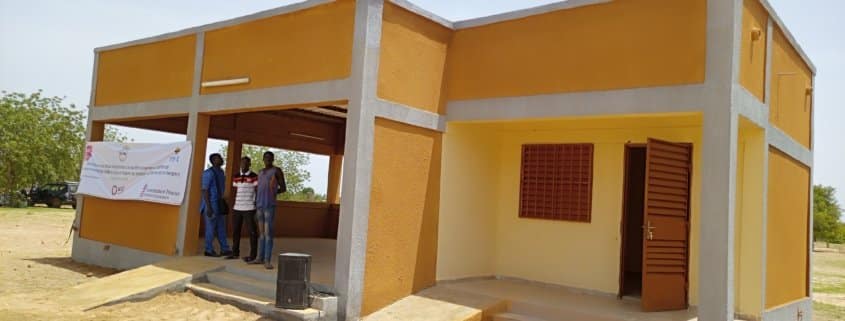In early 2021, two cowpea farmer organizations supported by Fert in Burkina Faso (the Ziga cooperative society (Scoops) and the Regional Union of Cooperative Societies of the Centre) started building collective cowpea storage warehouses. On April 22, 2021, the first building was inaugurated in the commune of Komsilga in the presence of the Mayor and the wife of the Prime Minister of Burkina Faso.
The cowpea crop has a significant place in the diet of Burkina Faso’s urban and rural populations. The advantages of its production and the strong demand for both domestic and export products make cowpea one of the country’s strategic agricultural value chains.
In partnership with Accir, Fert has been supporting cowpea farmer organizations in the Sanmatenga region since 2007 and in the Centre region since 2017.
The cooperatives in the Centre region did not have collective storage facilities, which meant that farmers had to store their cowpeas individually; however, conditions were not always adequate and storage capacities were limited.
The problem of storing cowpeas therefore quickly emerged. Collective storage allows farmers to reduce the hunger season by having cowpeas available all year round. It also allows them to obtain a higher selling price by storing the cowpeas from October, at the time of harvest when the price is lowest, and by removing them from storage between May and August, when prices are highest.
The Ziga Scoops and the Regional Union of Cooperative Societies of the Centre therefore requested support from Fert. The construction of the storage buildings is subsidized under a project implemented in partnership with GRET with European funding.
To meet the needs of farmers, a space dedicated to small processing and a store are attached to the storage spaces.
Within the FOs, the farmers have set up “storage and marketing” committees with elected members specifically responsible for monitoring the construction of the stores. Thus, farmers are involved in each step of the construction, from the architectural study to the follow-up of the work.
The FOs contribute to these constructions by ensuring that the site has water and by providing the necessary aggregates (sand, gravel, wild stones and laterite). Some FOs have solicited other partners, notably the municipal authorities, to help them mobilize these inputs.
These stores will be entirely managed by the partner cooperatives.
The Ziga store in Sanmatenga will provide a storage service for 210 farmer members, including 183 women. In the Centre region, four warehouses will be built to facilitate the storage and processing activities of 625 women farmers.




